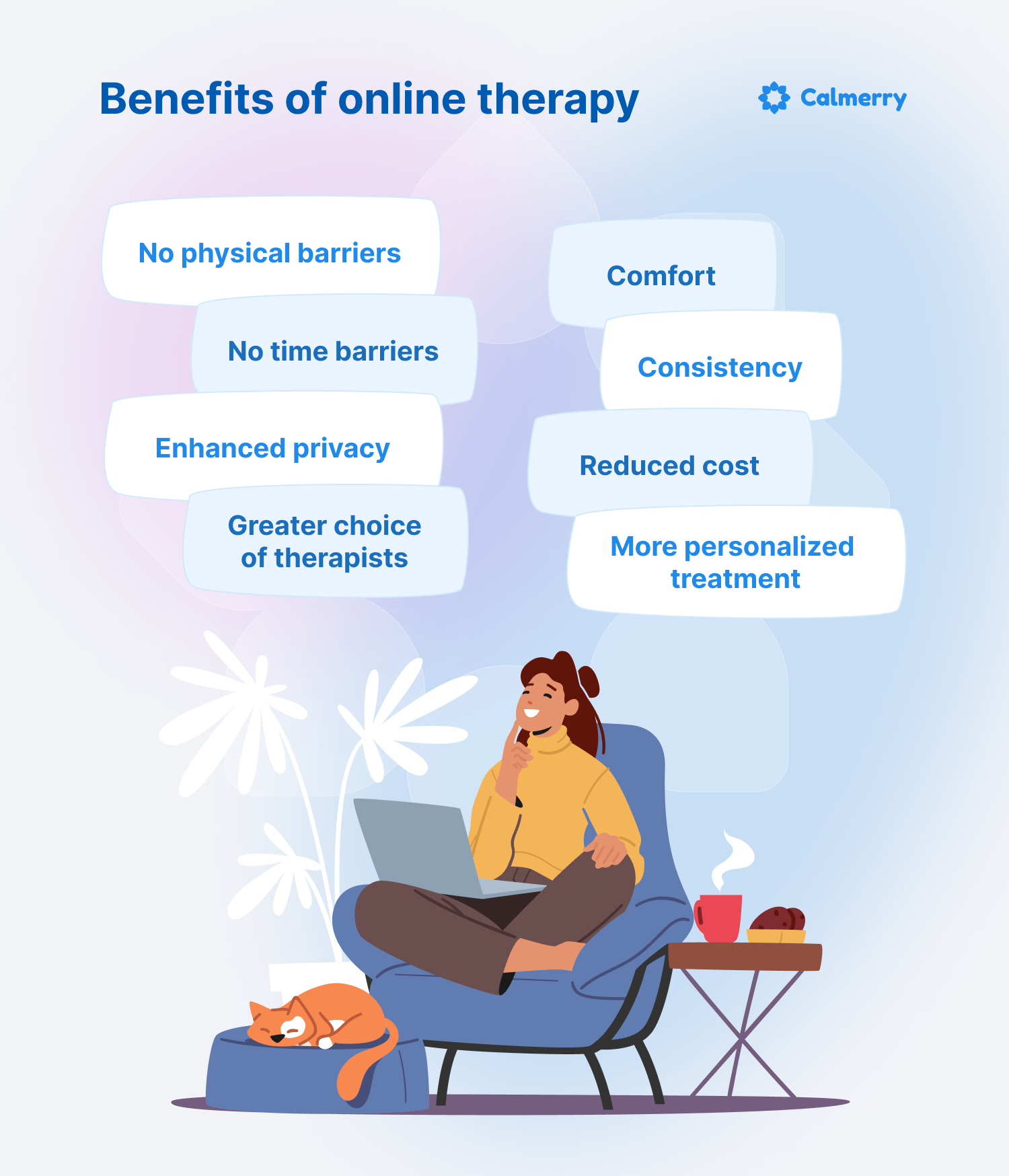Holistic Care: Find Therapy for Chronic Illness in Houston
Holistic Care: Find Therapy for Chronic Illness in Houston
Blog Article
Unpacking the Performance of EMDR Treatment for Stress And Anxiety Relief
As the occurrence of anxiety disorders continues to climb, checking out reliable restorative treatments is vital. Eye Movement Desensitization and Reprocessing (EMDR) treatment has amassed interest for its supposed effectiveness in easing anxiety symptoms. Nevertheless, amidst the expanding rate of interest in EMDR, inquiries continue about its real efficiency and the devices whereby it operates. By examining the complex interplay in between EMDR and anxiety relief, we may reveal valuable understandings right into the capacity of this healing modality. Remain tuned as we explore the subtleties of EMDR treatment in the context of anxiety management, clarifying its pledge and constraints.
History of EMDR Therapy
Initially established in the late 1980s by psychologist Francine Shapiro, Eye Activity Desensitization and Reprocessing (EMDR) therapy has actually considering that gotten recognition as a reliable treatment for numerous mental health and wellness conditions. Shapiro's discovery of EMDR was serendipitous, as she observed that certain eye activities seemed to minimize the strength of unfavorable thoughts and emotions. This observation resulted in the organized growth of EMDR as an organized treatment method.
EMDR is established on the idea that stressful memories are improperly processed and saved in the mind, bring about the advancement of mental issues. The treatment aims to assist in the reprocessing of these memories, making them less troubling and assisting individuals to integrate them a lot more adaptively. Through a collection of standard procedures, consisting of bilateral excitement such as eye activities or taps, EMDR overviews clients via the processing of distressing experiences.
Over the years, EMDR has actually advanced from its initial concentrate on treating post-traumatic anxiety problem (PTSD) to dealing with a vast array of mental health and wellness problems, including stress and anxiety, depression, fears, and more. Its performance and efficiency have made it a valuable tool in the healing landscape.
Understanding Anxiousness and EMDR
Shapiro's groundbreaking development of Eye Movement Desensitization and Reprocessing (EMDR) treatment not only changed the therapy of trauma but likewise led the way for a deeper understanding of just how EMDR can effectively ease anxiousness symptoms in people. Anxiousness problems encompass a variety of conditions defined by too much fear, worry, and uneasiness, typically bring about substantial distress and impairment in everyday functioning. EMDR treatment targets upsetting memories and adverse beliefs that add to anxiety, utilizing bilateral stimulation to assist in the processing of these experiences. By engaging the brain's all-natural recovery devices through directed eye motions or other kinds of reciprocal stimulation, EMDR assists individuals recycle stressful memories, minimize psychological sensitivity, and establish flexible coping devices. Researches have actually revealed encouraging results in using EMDR for various stress and anxiety conditions, such as generalised anxiety disorder, social stress and anxiety problem, and panic attack, highlighting its effectiveness in alleviating stress and anxiety signs and enhancing general wellness.
Efficiency of EMDR for Anxiety
Research study searchings for have constantly shown the effectiveness of Eye Motion Desensitization and Reprocessing (EMDR) treatment in reducing stress and anxiety signs throughout various anxiety conditions. Research studies have actually shown that EMDR is particularly helpful for people with post-traumatic tension condition (PTSD), generalised anxiety disorder (GAD), phobias, panic condition, and social anxiousness disorder. EMDR's effectiveness in dealing with stress and anxiety is connected to its distinct strategy of targeting distressing memories or experiences that add to the growth and maintenance of anxiety symptoms.
A meta-analysis published in the Journal of Anxiousness, Stress & Coping discovered that EMDR dramatically reduced anxiety signs contrasted to manage conditions, with the impacts lasting gradually. In addition, EMDR has actually been revealed to be as efficient as cognitive-behavioral therapy (CBT) in minimizing anxiousness signs and symptoms, with some studies suggesting that EMDR may result in faster improvements for sure people.
Neurobiological Mechanisms of EMDR
The effectiveness of Eye Movement Desensitization and Reprocessing (EMDR) for stress and anxiety relief has led scientists imp source to check out the neurobiological systems underlying its therapeutic effects. Throughout EMDR therapy, the bilateral excitement, such as eye movements or faucets, may trigger the mind's info handling mechanisms, leading to the reconsolidation of distressing memories.
Moreover, research studies making use of neuroimaging techniques have actually revealed that EMDR therapy can bring about modifications in mind activity, especially in areas associated with emotional handling and memory, such as the amygdala and hippocampus. virtual therapist houston. These neurobiological modifications might contribute to the observed decreases in anxiousness symptoms following EMDR treatment. More research is needed to totally clarify the accurate neurobiological mechanisms whereby EMDR applies its restorative results on anxiousness
Applying EMDR Techniques

Therapists tailor the EMDR technique to suit private requirements, taking into consideration factors like the nature of the anxiety, personal background, YOURURL.com and customer preferences. By skillfully applying EMDR methods, therapists can assist customers in minimizing anxiety signs and symptoms and promoting psychological health.
Final Thought

Report this page